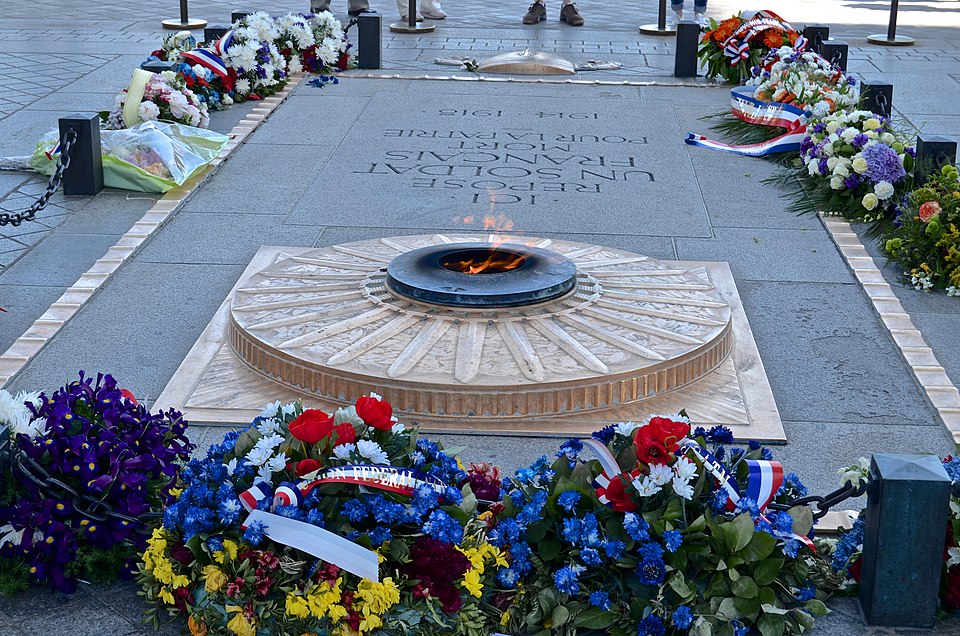France’s Victory in Europe Day: Celebrating the Fête de la Victoire
Every year on May 8th, France commemorates la Fête de la Victoire, also known as le Jour de la Victoire en Europe (Victory in Europe Day). This national holiday marks the official end of la Seconde Guerre mondiale (World War II) in Europe. It also commemorates the capitulation de l’Allemagne nazie (surrender of Nazi Germany) to the Allied forces in 1945. It is a day of solemn remembrance and national pride. The day honors the sacrifices of French soldiers and la Résistance (the Resistance). It also honors civilians who endured six years of war and occupation.
Origins and Historical Background of France’s Victory in Europe Day
On le 8 mai 1945, German military leaders signed the unconditional surrender in Reims, in northeastern France, at the headquarters of le général Eisenhower. The fighting had ended earlier in Italy and parts of Western Europe, but the signing marked the official conclusion of hostilities in Europe. Le général Charles de Gaulle, leader of the Free French Forces and later President of France, announced the news to the nation in a radio address, declaring May 8 a day of victoire et liberté (victory and freedom).
Initially, people observed the holiday regularly, but it was briefly removed from the official list of jours fériés (public holidays) in the 1970s for political reasons. It was later reinstated by le président François Mitterrand in 1981. La Fête de la Victoire has remained a fixed public holiday ever since.
Celebrating la Fête de la Victoire Today
France’s Victory in Europe Day is a jour férié (public holiday) throughout France. This means that most businesses, schools, and government offices are closed. It is not a day of festive parties but rather a respectful commemoration of the end of the war and a tribute to those who served and died.
Across the country, local municipalities organize des cérémonies commémoratives (commemorative ceremonies). In towns and villages, les maires (mayors) lead des dépôts de gerbes (wreath-laying ceremonies) at les monuments aux morts (war memorials). Often, des anciens combattants (veterans) receive invitations to participate. Sometimes schoolchildren accompany them and read des discours (speeches) or poems.
In Paris, the President of the Republic traditionally leads a solemn ceremony at l’Arc de Triomphe, where he lays a wreath at la tombe du Soldat Inconnu (the Tomb of the Unknown Soldier). The flamme du souvenir (flame of remembrance) is rekindled, and a minute of silence is held to honor the fallen.
La Fête de la Victoire is not a fête gastronomique (food-related holiday), and there usually aren’t festive parties. But many families use the jour de repos (day of rest) as an opportunity to gather for lunch or enjoy spring weather.
Cultural Significance of France’s Victory in Europe Day
Victory Day serves as an important reminder of France’s suffering during the occupation. It also commemorates the courage of the Forces françaises libres (Free French Forces), and the enduring value of peace and democracy. It is a day when the French reflect not only on military victory but also on the moral lessons of the war, including the dangers of le fascisme (fascism) and the importance of la liberté (freedom), l’égalité (equality), and la fraternité (brotherhood/solidarity).
For younger generations, the holiday is also an opportunity for l’éducation civique (civic education). This ensures that the memory of World War II and the sacrifices of past generations are not forgotten. In this way, la Fête de la Victoire continues to hold deep meaning in the French national consciousness. It stands as a symbol of resilience, remembrance, and unity. It is an invitation to France and to the entire world to avoid repeating the tragic mistakes of the past.
Get on the road to speaking French with the Language Garage!
We hope you’ve enjoyed learning about France’s Victory in Europe Day, or Fête de la Victoire. If you’d like to learn more:
- Follow us on Facebook, LinkedIn, BlueSky, Twitter, Threads, Mastodon, Instagram, or Pinterest. We publish lots of French vocabulary, grammar, and culture notes, so it’s a great way to pick up some new vocabulary and practice.
- Check out our other posts on French language, culture, and more.
- Enroll in affordable, flexible, and personalized private online French lessons or sign up for a small group online French class.
- Create a free Language Garage account to access tons of French vocabulary, grammar, and culture.
Image Source Wikimedia Commons






